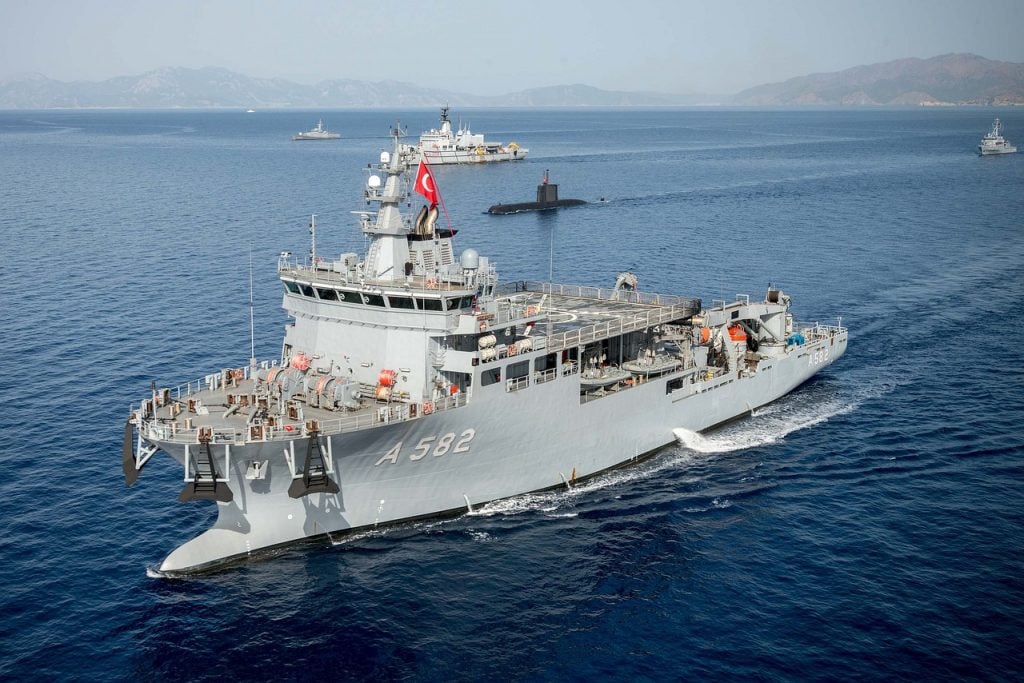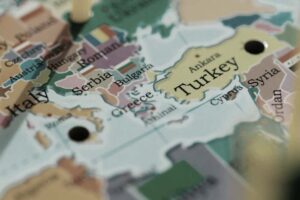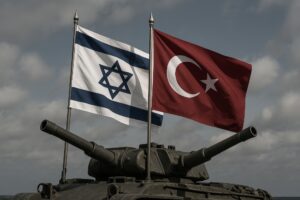After dealing with old enemies, Israel must now adjust to new powers with growing influence in the Middle East: Turkey and Russia.

The Israeli Navy usually doesn’t get much attention. But soon it may be called upon to play a key role in ensuring Israel’s national security, according to a fascinating (and somewhat disturbing) recent report.
While we were busy reading about Iran and Hezbollah, experts at the University of Haifa were busy doing other things. For example, warning us about Turkey and Russia. Or drafting the annual evaluation of the Maritime Policy and Strategy Research Center (Here is the Hebrew version. No English just yet).
This impressive document carries some bad news about growing global instability and emerging threats at sea. For Israel, the maritime environment could quickly turn into a nightmarish war theater. And the experts say that we are not treating this seriously enough.
But first, why is maritime security so important for Israel? As it turns out, lots of reasons. Here are some key ones courtesy of Prof. Shaul Horev, who recently spoke with the Makor Rishon weekly (he is also a retired senior Navy commander):
- Israel is virtually an island state surrounded by mostly hostile forces
- Much of Israel’s population and key infrastructure is on the shoreline
- Most of Israel’s trade (99%) is undertaken via the maritime route
- Israel now operates lucrative gas fields in its territorial waters
- All of Israel’s communication lines to the world are at sea
- Israel’s desalination plants are located on its shores
The Turkish Giant
And now back to the annual assessment. It tells us that we should be very concerned about Turkey. Not only is it becoming increasingly aggressive and distancing from the West, it also possesses some massive naval power. And its navy is getting even stronger.
The Turkish Navy is boosting its large fleet with new missiles and advanced weapons. It’s also building submarines as it moves to self-production of vessels and combat systems. By now, the Turks have the most powerful Navy in the eastern Mediterranean, the experts say.
The report warns that Turkey is building the kind of Navy that could project power across the region. This could interfere with Israel’s maritime energy projects and create other problems, as Turkey under Erdogan’s leadership has not been a good friend, to put it mildly (you can read about it here and here).
Notably, Turkey recently signed an agreement with Libya in an effort to bring parts of the Mediterranean under Turkish control. Soon after, Turkish Navy ships forced an Israeli research vessel in Cypriot waters to leave (you can read more about it here). Prof. Horev says that a similar incident involving an Israeli warship would carry explosive potential.
New Russian Neighbor
And then there’s Russia. While Moscow is not located in the Middle East, Russia’s deployment in Syria creates a major Russian foothold here. You could say that Russia is now a neighbor renting strategically placed property on a long-term lease.
The annual evaluation says that Russia’s Mideast presence enables it to counter security threats, gain key strategic assets (naval and air force bases in Syria), and boost its stature as a world power. In short, some very good reasons to stick around.
But there is one point of particular concern. A key Russian interest is to keep energy prices high, as Moscow depends on its oil and gas exports. In other words, an unstable Middle East can play in Russia’s favor, the report says. And now Moscow is in position to encourage such mayhem.
Now here are some details to keep in mind:
- The Russian fleet in the region comprises 8-15 vessels
- Russia’s naval forces engage in aggressive electronic warfare
- In 2018, Russian naval drills shut down parts of the Mediterranean
- In 2019, Russian submarines were spotted near the central Israel shoreline
Overall, Russia is fundamentally changing Israel’s immediate environment. Prof. Horev notes that the IDF already has to coordinate its Syria operations with the new Russian neighbor (which is apparently not too happy about them). Next, Russia could demand the same arrangement at sea, he says.
To sum up, some big changes are happening in the region. New powers are emerging, while older powers are taking a step back (the report includes an interesting section about America, and also about Egypt’s growing navy). I think I’ll been taking a closer look at these issues from now on (while still keeping an eye on Iran and Hezbollah).


